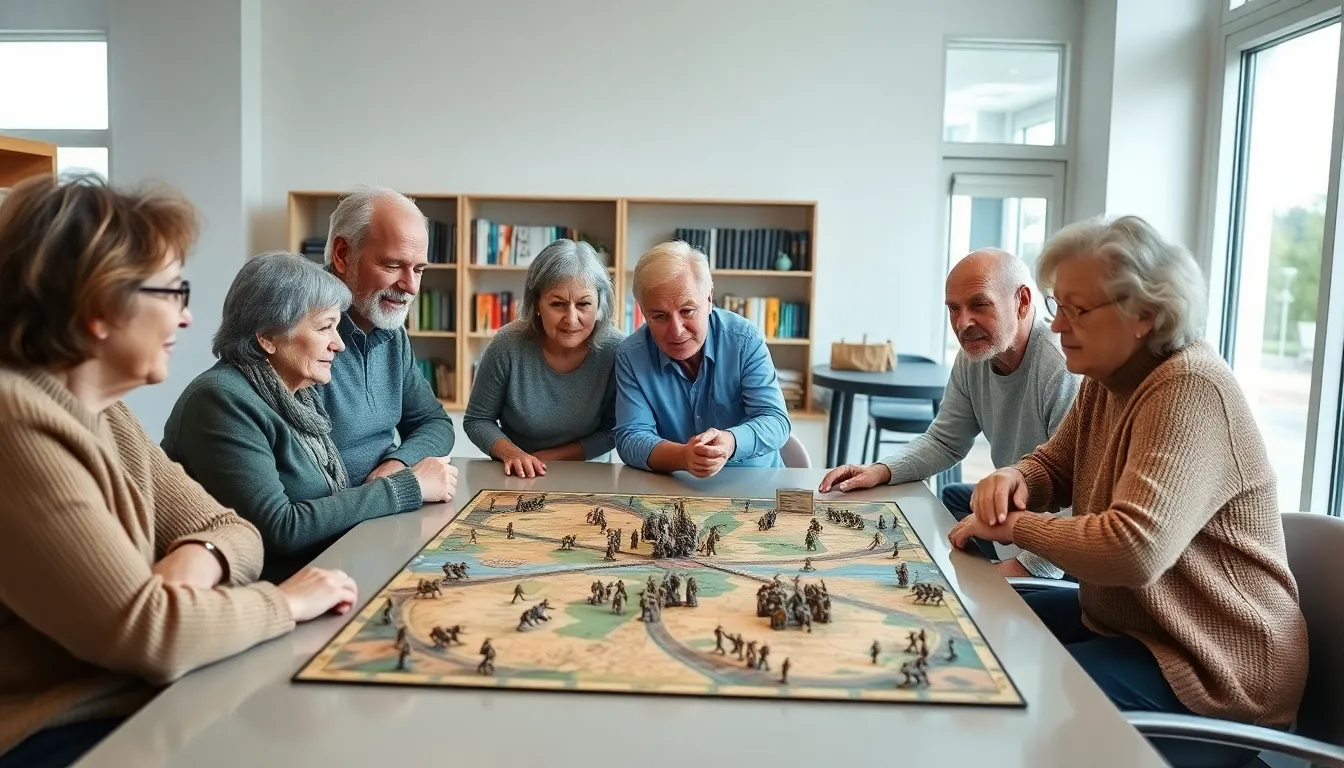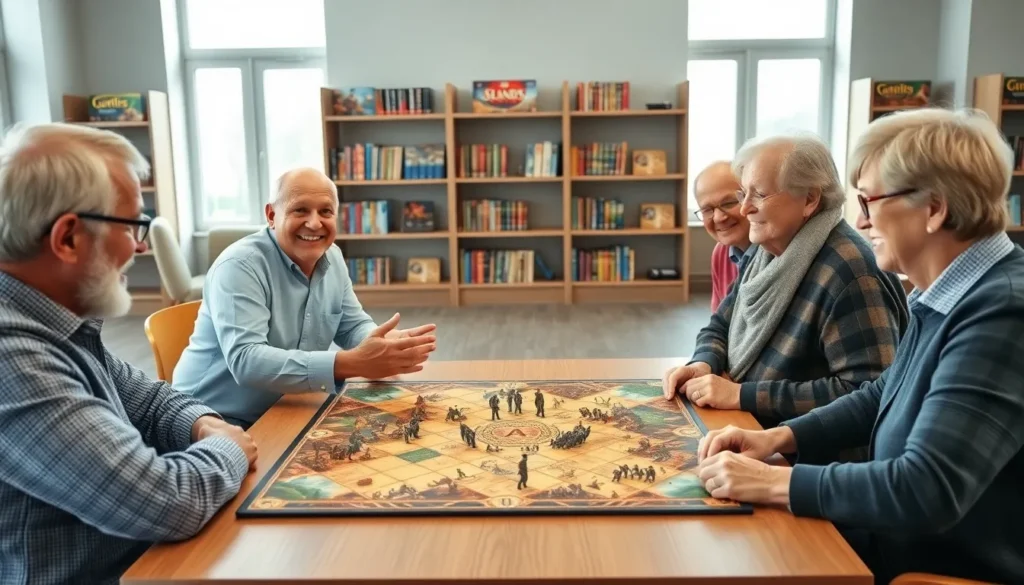Table of Contents
ToggleWar games have long captured the hearts, and minds, of players young and old. But what’s this intriguing phenomenon that draws our older generation into the battlefield? It turns out, it’s not just about strategy, power plays, or leveling up: it’s about camaraderie and cognitive engagement too. In this text, we’ll explore why these games are the surprise hit among elders and how they can enhance not only their gaming skills but also their overall well-being. Get ready to discover the fascinating intersection of war games and the elder gaming community, who knew grandma could be a commandant?
Understanding the Appeal of War Games Among Elders

War games have an enduring allure, but why have they gained a foothold among the older generation? For many, these games offer a nostalgic return to a time when strategy and tactical thinking ruled the roost. Playing war games can invoke memories of real-life events, from yesteryear’s news stories to childhood tales, fostering a sense of connection with history.
Also, they often appreciate the depth and complexity that come with these titles. Unlike some fast-paced shooters, war games typically require careful planning, patience, and long-term thinking. They also provide an engaging way to hone these skills and keep the mind sharp. Whether it’s a board game that mimics classic battles or a video game that dives deep into the intricacies of military strategies, elders find themselves enjoying a bundle of engagement and mental challenge.
Cognitive Benefits of War Gaming for Older Adults
The cognitive benefits of war gaming for older adults are noteworthy. Research indicates that engaging in strategy games can improve cognitive flexibility, problem-solving skills, and even memory retention. It’s like giving their brains a workout, but without the need for a yoga mat.
Several studies show that older adults who participate in regular gaming activities experience slower cognitive decline compared to those who don’t. Whenever players assess risks, develop strategies, and make decisions under pressure, they’re stimulating neural pathways that promote brain health. In essence, these games are not just fun: they’re a fantastic form of mental exercise that can lead to increased cognitive longevity.
Types of War Games Suitable for Elders
When it comes to choosing the right war games for older adults, options abound. Here are a few categories worth exploring:
- Board Games: Classics like Risk and Axis & Allies can be great for gatherings. They’re strategic, encourage face-to-face interaction, and provide a tactile experience that video games lack.
- Tabletop RPGs: Games like Dungeons & Dragons engage creative storytelling along with strategic planning, making them ideal for fostering social interaction.
- Video Games: Titles like Total War or Company of Heroes offer immersive experiences and can be played solo or cooperatively, allowing for flexible gaming sessions.
- Mobile Games: For those who might struggle with conventional gaming setups, simpler mobile war games can be an excellent option, allowing easy access and quick gameplay.
Tips for Introducing War Games to the Elderly
Getting older adults into war games can feel daunting, but it’s all about the strategy. Here are some helpful tips:
Creating an Inclusive Gaming Environment
Ensure the space is comfortable and free from distractions. A well-lit room with easy access to snacks and beverages can make all the difference. Offering a warm smile and a patient demeanor can encourage participation.
Choosing the Right Game Settings
Start with simpler games and gradually introduce more complex ones. Allow them to ease into the mechanics of gameplay without feeling overwhelmed. Multiplayer options can be helpful too, as they foster community and bonding.
Encouraging Social Interaction Through Gaming
Gaming provides more than just cognitive benefits: it’s also a powerful tool for social interaction. For elders, it can reduce feelings of isolation and promote community engagement. Playing war games, especially in a group setting, allows for the sharing of laughter, stories, and strategic banter that can strengthen friendships.
There’s something incredibly bonding about strategizing together over a board. Getting their friends or family involved can truly transform gaming into a social gathering, where everyone contributes and enjoys the experience.
Personal Experiences and Testimonials from Gamers
Many storytellers have experienced the phenomenal effects of war gaming. For instance, Ruth, a retired schoolteacher, shared that playing board games with her neighbor has drastically improved her social life. “I never thought I’d enjoy gaming at this age, but it’s brought so much joy and laughter into my evenings.” she exclaimed.
Similarly, John, a 72-year-old veteran, mentioned how war games allow him to relive strategic moments from his youth: “These games remind me of the tactics we used in the field, but now I’m in control.” Such sentiments illustrate that gaming isn’t just a pastime: it’s a renewal of passion and engagement with life.




